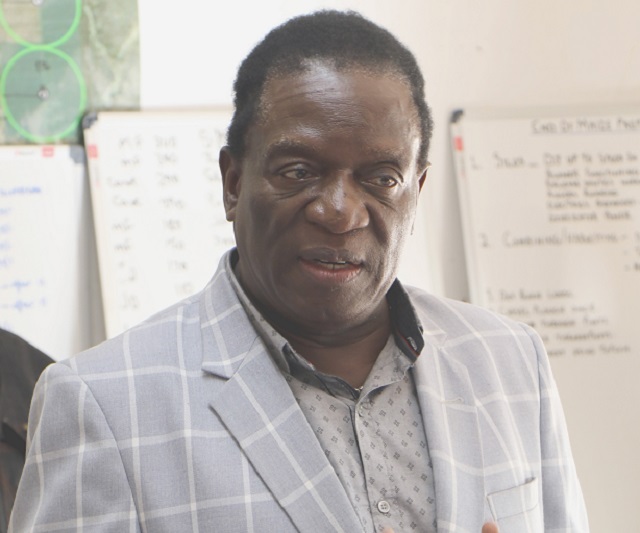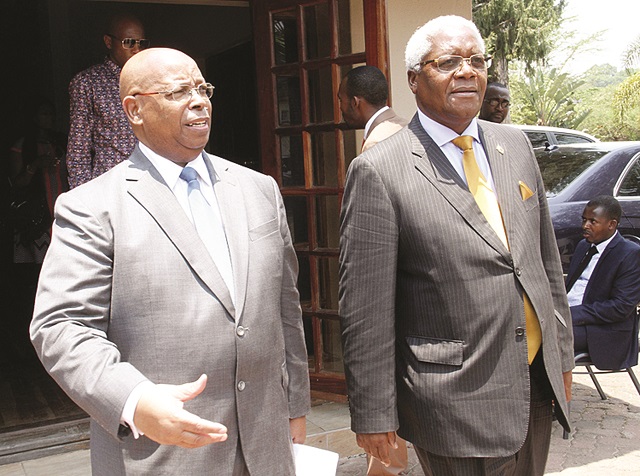Etiquette and Grooming

Justice Simango
Everyone has the occasional bad job interview. You show up late, you wear the wrong attire and you can’t seem to put a sentence together.
It happens to the best of us. Interview etiquette is vital for every professional; it is part of our career advancement and professional growth. How you dress, greet and communicate with the interviewer and what you bring to a job interview all have a direct impact on your interview.
Interview etiquette is the code of behaviour that delineates expectations for business manners according to contemporary norms within a professional class or group.
A lack of attention to etiquette may have an equally detrimental effect on your employment chances. However, there are many types of interviews serving diverse purposes and therefore knowing what to expect can help you prepare and achieve your goals.
You may encounter interviewers who blend styles to suit the interview objectives and to test for employment readiness. The purpose of an interview is for you and the interviewer to know one another.
Telephone/ Screening Interview
A telephone interview is a cost effective way to screen candidates. Companies use screening tools to ensure that candidates meet minimum qualification requirements. These can last between 10 to 30 minutes. You should prepare for it like an open book exam.
I recommend that you have in front of you, your CV, job description, a list of references and some prepared answers to challenging questions. The vast majority of the communication is verbal, because they cannot see your body language, it is vital to have positive and polished answers punctuated with energetic tone and inflection.
Screening interviews are the reason why you need an up to date digital modern CV/ Resume that is screening friendly. Computer programmes and sometimes, human professionals are the tools used to weed out unqualified candidates.
Remember, they do not need to know whether you are the best fit for the position, only whether you are not a match. For this reason, screeners tend to dig for dirt, hone in on gaps in your employment history, or pieces of information that look inconsistent. They also want to know if you will be too expensive for the company.
However, maintain composure, highlight your accomplishments and qualifications, get to the straightforward groove. Personality is not as important to the screener as verifying your qualifications. Save your winning personality for the person making hiring decisions. Be tactful about addressing income requirements. Give a range and try to avoid specifics, by replying, “I will be willing to consider your best offer”.
Behavioural-Based Interview
This is also referred to as the STAR Interview (Situation, Task, Action and Results). Candidates are required to respond to questions that require examples of previous activities undertaken and behaviours performed. Work-related situations will provide more insight about your behaviour, personality and character.
To succeed on this type of interview, be sure to give detailed and well structured examples that demonstrate your competence in core behaviours such as teamwork, problem solving, communication, creativity, flexibility and organisational skills. Remember, the purpose of this interview is to predict future performance based on past experiences.
Individual Interview
Interviewing experts like this type of interview. It is the most common type of interview. To prepare for this; you should know the length of the interview. Professional interviews can last for 30 to 90 minutes.
I have been called for more than 25 interviews for different applications both as a candidate and a panel interviewer and my experience has made me strongly believe that, in-person interviews are the best. They provide an initial impression of your attitude, interest and professional style.
Group Interview
This can be an intimidating experience if you are not prepared! The group interview is mostly used by large companies for graduate intakes. This interview can last for two hours to a day long and usually includes a group problem-solving exercise.
The interviewers may ask questions in an unstructured manner; therefore the answers and comments may not be related to one another. Experts use this type of interview to observe how candidates can react under pressure, evaluate how individuals interact with different people with different personalities.
Test for communication skills and assess the “fit with the group”.
Stress Interview
Many candidates I have trained on this subject have expressed mixed feelings about this type of interview. My advice to all the folks preparing for a stress interview or have experienced one and did not make it is remember to keep cool, take your time in responding to the questions and don’t make the mistake of taking anything personally.
The stress interview intentionally creates and promotes discomfort. The interviewer may have an abrupt or harsh attitude. Other interviewers have the tendency of staring or just being silent on you while taking down notes. The purpose of this type of interview is testing the candidate’s ability to be sensitive and handle difficult situations.
Luncheon/ Dinner Interview
Modern day companies are looking out for employees with people skills. This type of interview is conducted inside a hotel or restaurant to assess how well you handle yourself in social situations. I know most of us get excited when we are called up for a luncheon interview, (the meal) but it’s the most challenging for me. One has to pick easy things to eat so you can answer questions and pay attention to the conversation.
Video Conference Interview
This is under “Netiquette” where employers use technology for a person to person interview by video. Always do a mock interview with a friend as part of your preparation.
Practice makes perfect, hence if you want to be a well groomed professional, master the etiquette ethics behind these types of interviews. Don’t miss part two.
-Justice Simango is a business etiquette expert. He is the Vice President Membership for Supreme Toastmasters Club. Feedback: [email protected] , WhatsApp: +263 717 566 382











Comments